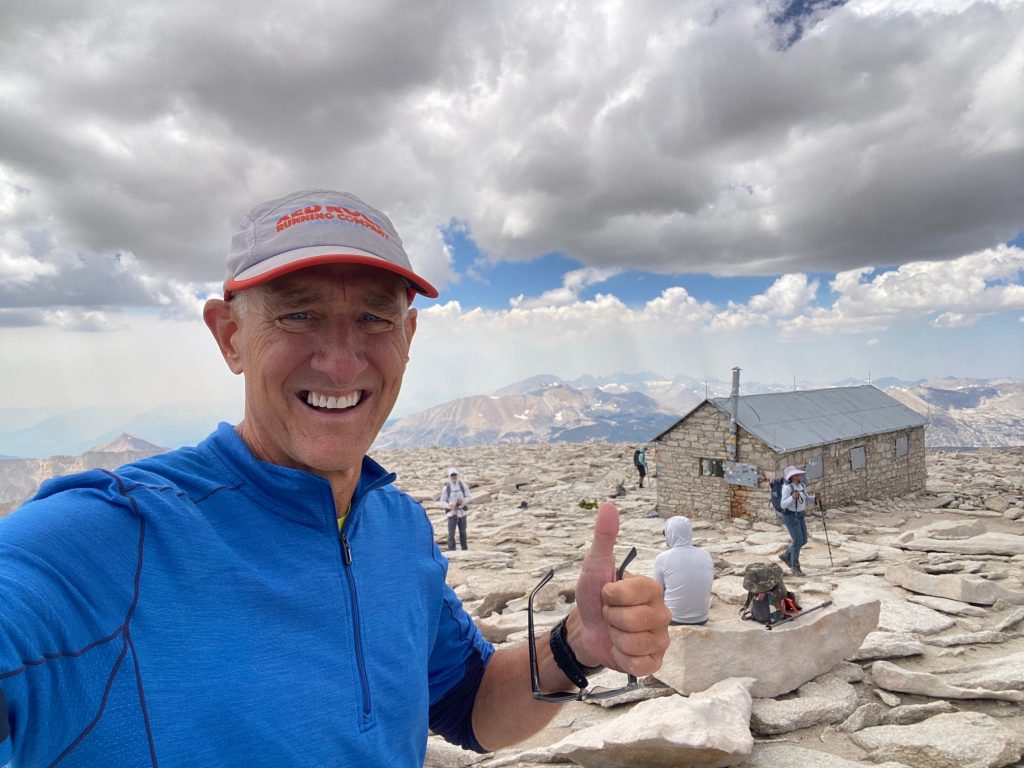Shortly after turning 60 and having then recently survived Non-Hodgkin's Lymphoma and an eight-month-long battle with Covid-19, I joined a group of long-time friends as we attempted to hike to the top of California's Mount Whitney. At 14,508-feet in altitude, Mt. Whitney is the tallest peak in the lower 48 United States and I was hoping this hike to the summit would mark my return to full health.
About half way up, I began feeling a new pain in my right hip. Over the next few hours, the pain became more intense and I was forced to place safety above all else and abandon my goal of reaching the summit. During the five and a half hour hike down, the pain became unbearable, but I made it down safely. Upon returning home to Connecticut, I foolishly ignored the pain for several months, thinking it was just a case of hip bursitis caused from over training for the hike. I had developed a pronounced limp, but since I was still able to row daily and cycle on occasion (neither of which are weight bearing), I had foolishly assumed nothing could be too bad.
On a follow-up visit to my Boston oncologist at Dana Farber Cancer Institute, a routine CT scan revealed an absolute mess - a severe compression fracture of the right femoral neck, likely a pathologic fracture caused by the earlier radiation treatment to cancer in my right groin. I also reminded my oncologist of the eight months I had been treated with high dose corticosteroids for Covid, which had also caused loss of bone density. I was told about the risk of avascular necrosis and the need to have this traumatic hip injury addressed immediately.
Based on several personal referrals, I was able to get an appointment with Dr. Andrew Grose at HSS Orthopedics with Stamford Health within one week and my total hip right hip replacement surgery followed just a few weeks later. During my initial consult, I stressed to Dr. Grose and his assistant Ron that I was a competitive rower and it was my full intention to continue competing as soon as safely possible after the procedure. They both assured me that if I was diligent about my rehab (most especially walking), that there was no reason I couldn't resume my rowing, cycling, hiking, and most other activities.
The operation (posterior approach) was August 4, 2023, and I was up and walking carefully with a walker that same afternoon. Though I missed 52 days of rowing, my walking and rehab went well and I was cleared to begin light rowing again on September 26, 2023 . . . and I've not missed a single day since (438 consecutive days as of this writing). I also won the first indoor rowing race I entered with my new hip. To say I was and am pleased is an understatement!
Perhaps the best part of all, for me, is having returned to the Sierra Nevada mountains in July 2024, less than one year from my surgery, and having reached the summit of Mount Whitney and safely returning -- a challenging 15-hour, 22-mile day hike, all without any hip pain at all.
Since that surgery, I've rowed over 5 million meters, have walked and cycled hundreds of miles, have played many rounds of golf, taught a friend's grandchildren how to roller skate, and done all the day-to-day chores that just two years ago felt nearly impossible without severe right hip pain.
These are my own true and honest words. Not only was Dr. Grose amazing, but his team of assistants (including admin scheduling and responding to my emails and phone calls) were all amazing. I encourage EVERYONE who has a need to look past their apprehension, certainly ask questions, but know that you will be in excellent hands.




